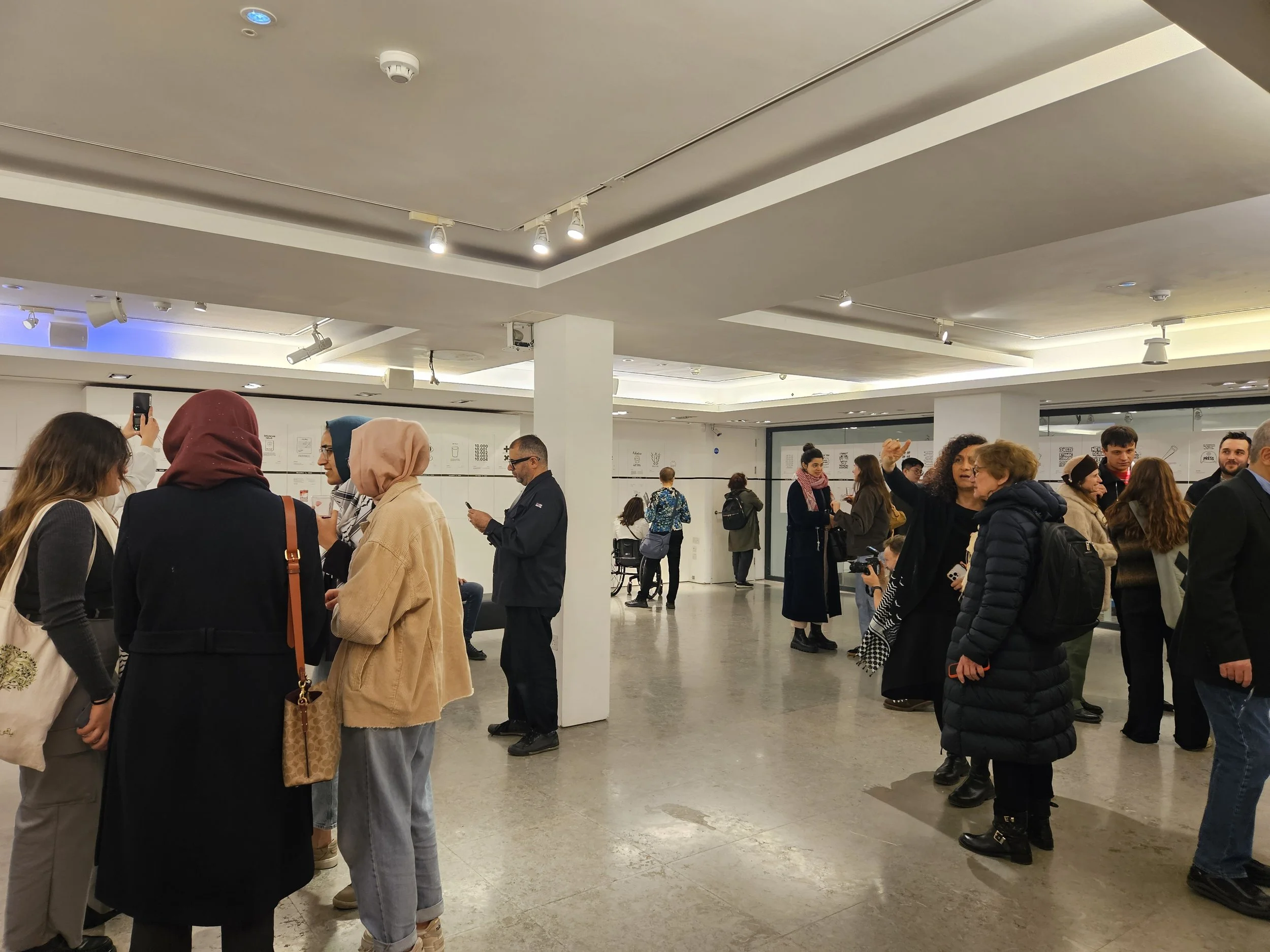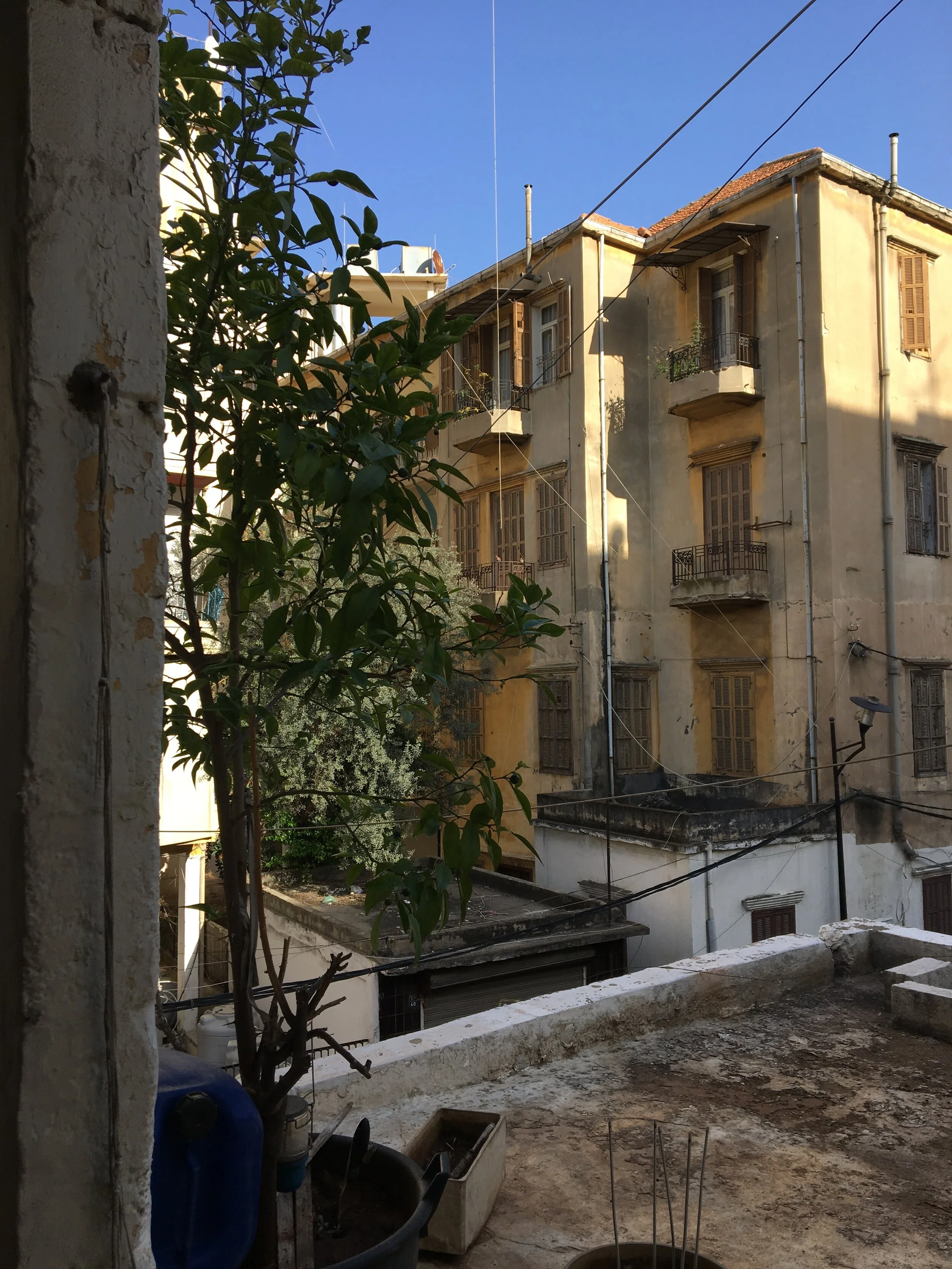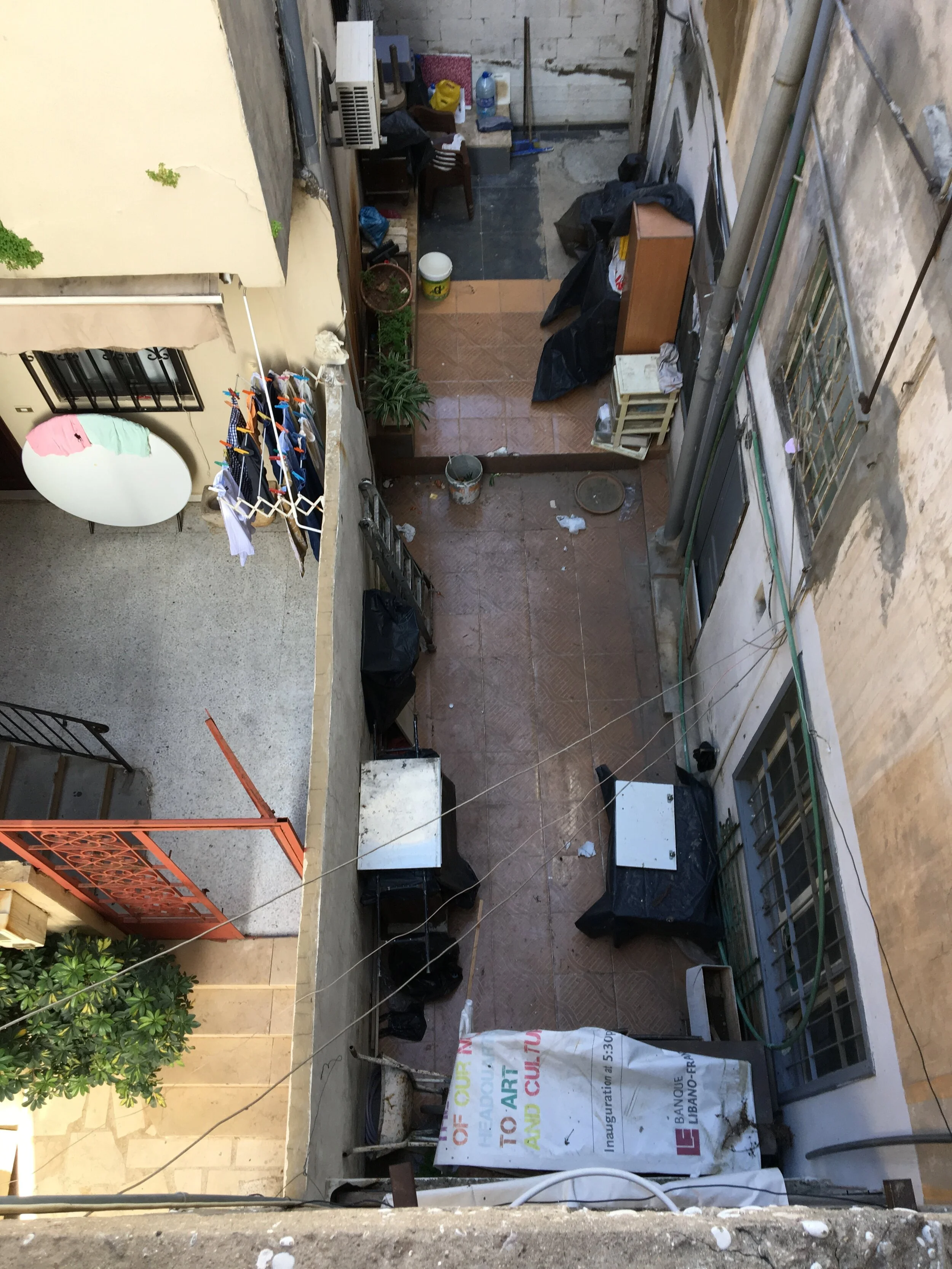The Don’t Stop Drawing: Visual Diaries of Solidarity with Gaza exhibition took place at P21 gallery from 19th March to 2nd April 2024. It showcased artwork created by Mazen Kerbaj and Jana Traboulsi. These drawings were presented in chronological order, showing the timeline of when each piece was posted on Instagram, since the devastating war on Gaza started in October 2023.
Camden Citizen Scientist Hazzel Tabernilla interviewing artist Mazen Kerbaj during the exhibition opening, March 19th 2024.
Looking at each piece in person and going through the exhibition chronologically, it was like re-living those events again. Each drawing brings back memories of the atrocities that have happened. Each video or image you see on social media, each piece of news you hear or read online, all of it was condensed into an artwork that conveys so much emotion. The timeline puts into perspective how long the war on Gaza has been going on. It makes you feel helpless.
It’s devastating.
During the exhibition, I spoke with Mazen Kerbaj to discuss his work. When the war on Gaza started, drawing was his reaction. Drawing is his natural reaction to anything, to good things, but mostly to bad things. Mazen told me that the war on Gaza was “one of the worst things I have witnessed, thus the amount of drawings.”
These drawings serve as a witness to these horrific events. With videos and pictures surfacing, then quickly being buried by new atrocities every week, sometimes it’s difficult to remember everything that has happened months ago due to the overdose of horrors. These drawings help us follow as events unfold, while also archiving these events for people in the future.
Responses by citizen scientists from Palestine, Lebanon and London were also shown in the gallery. One such response is by Maria, where she drew a bird found in the Middle East. She explained how this bird had a cry which sounds like “see, see, see,” as if the bird is calling you to not ignore or look away from what is going on in Gaza, and to remember what you have seen.
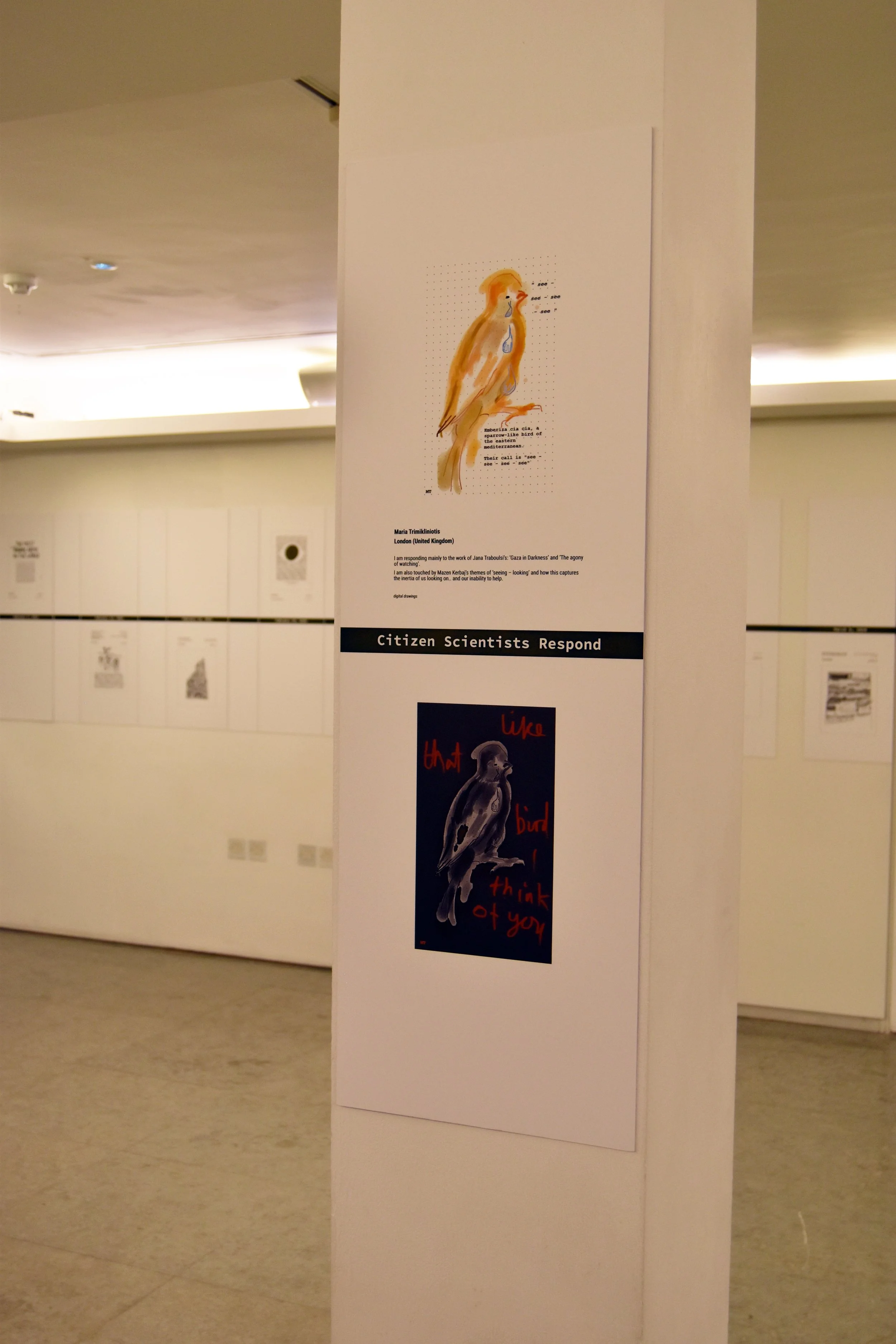

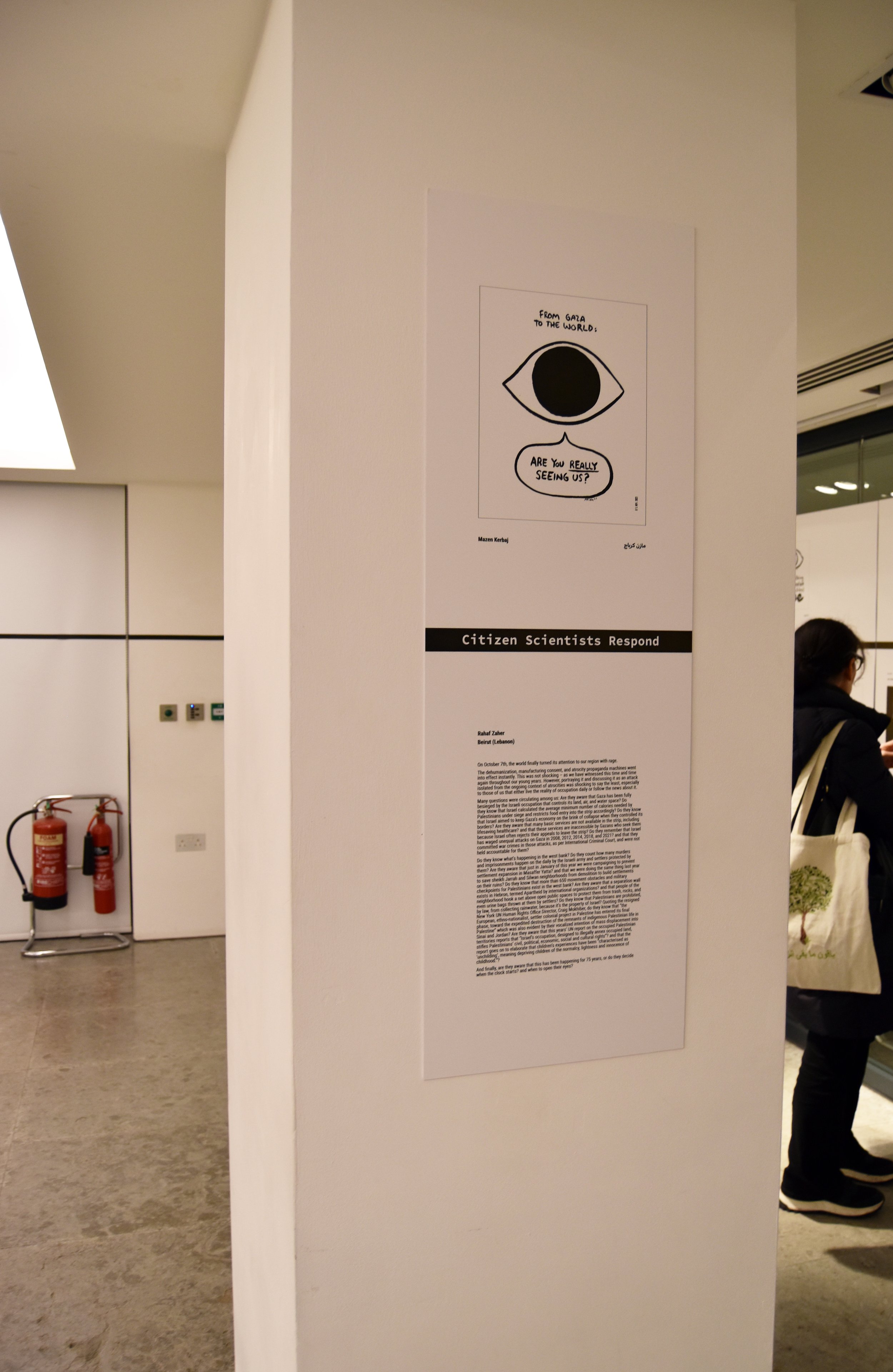
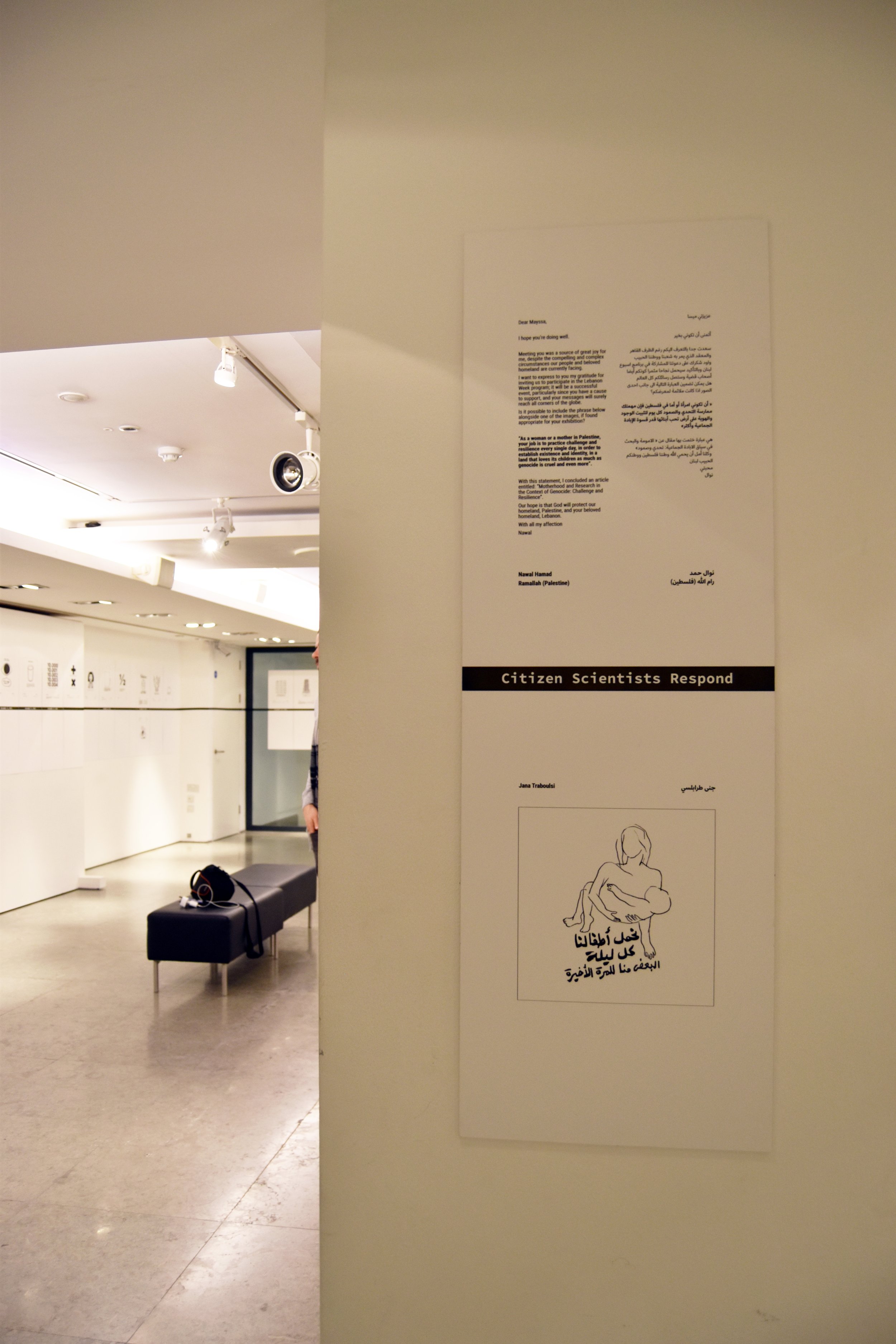
Responses by PROCOL Citizen Scientists Nawal Hamad (Ramallah, Palestine), Manar Younes (Nablus, Palestine), Maria (London. UK), and Rahaf Zaher (Beirut Lebanon)
Speaking with visitors from the exhibit, it was clear that the drawings helped to express and articulate how people feel about the situation in Gaza, with Sirine expressing how amazed she was at how the artwork conveys a lot of emotions. Emily felt the heaviness of the situation as you cast your mind back to the images of individuals you see online.
A common sentiment shared by Hussein and Mara is that it is important to attend events like this and being willing to actively engage and read about these stories. Feeling uncomfortable from these stories and recognising all these intense emotions is important for understanding the atrocities of what’s happening there. As pointed out by Hussein, the exhibit makes you feel “sorrow, but there is hope.” With visitors like Mara and Holly also echoing the feeling of hope and happiness from seeing so many people coming together for the exhibit.
It is clear many people stand in solidarity for Gaza.
The crowd during the exhibition opening day, Photo by Hazzel Tabernilla
